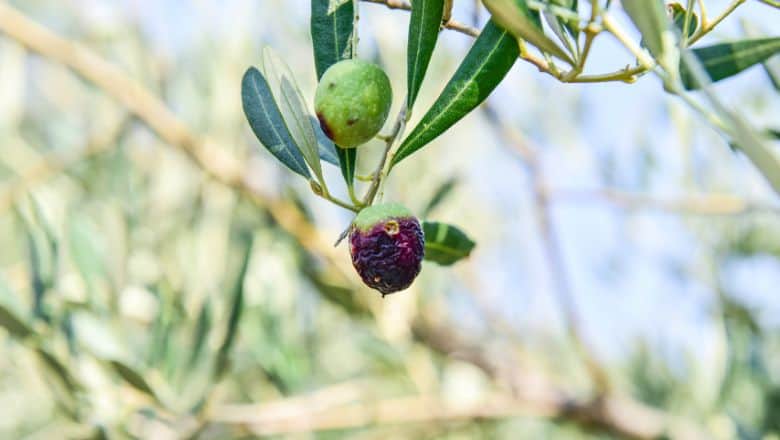Can You Harvest Olives In The Rain?
Olive Knowledge is a part of Amazon Associates. As an Amazon Associate, we earn from qualifying purchases. Read our Affiliate Disclosure to learn more.
Each year, it’s getting harder and harder to predict the weather. The climate changes are doing their thing.
For olive growers, that isn’t good because they want to know when it will rain, especially during the harvesting period.
In this post, I’ll talk about whether it’s a good or bad idea to harvest olives during rain.
Key Takeaways:
- Olive harvesting should not be done in the rain as it hampers work and reduces oil quality.
- Rains cause olives to absorb water, leading to lower oil yield and inferior quality.
- Post-rain, olives need 5-6 sunny days for oil levels to normalize.
- Harvesting strategies vary: before rains if olives are ripe, or after if they need more ripening.
- Post-rain, the olive fruit fly becomes more active, significantly damaging the fruits and oil quality.
Rain Fills Olives With Water

When it’s raining, olives are soaking with water. That means that olives will produce less olive oil, and the oil won’t be as quality as it could.
Rains are good while olives are still growing, but when it’s harvesting period, there should be sunny weather. There’s no point in olives that are heavy and full of water when they won’t give you enough olive.
After the rain, olives need five or six sunny days to return oil levels back to normal.
Some people tend to harvest olives just before it rains, while others like to wait for a few sunny days in a row. I’ll discuss both ways below, so make sure to read the whole article.
2 Solutions To The Rain

There are two solutions to the rain:
- to harvest olives before the rains start
- to harvest olives after the rains finish
Depending on the various conditions, both ways can be good or bad, but the most important thing is the ripeness level of olives on your farm. If olives are ripe enough, you should harvest them before the rains come.
On the other hand, if olives still need to ripe, you should wait for the rains to finish and let the olives ripe more.
IMPORTANT: Don’t harvest olives just after the rain finishes. There should be at least three sunny days after the rains. Ideally, you want 5 or 6 sunny days after the rain finishes, and then you can start harvesting.
The best way to check the ripeness of olives is the Olive Maturity Index. A good maturity index is anywhere between 2.5 and 4.5 (I like for it to be around 3.0).
For instance, if you know that there will be rain and the olive maturity index is 3.0, don’t wait – go and harvest olives.
On the other hand, if it’s 2.3, you should wait for the rains to finish and allow olives to be ripe more (preferably on sunny days).
I have made an Olive Maturity Index Calculator to make it easier for you so you don’t have to do all the math.
Olive Fruit Fly – The Biggest Enemy After The Rains

Whenever I can (when olives are ripe enough), I’ll harvest my olives before the rain. One of the reasons for that is that after the rains, olive fruit flies start to be more active, attacking the fruits.
Olive fruit fly (lat. Bactrocera oleae) is the biggest olive enemy. They can damage all the fruits, disturbing the quality of olive oil.
Each fly can damage up to 50 olive fruits, now imagine what 200 or 300 flies could do on your olive farm, and that’s not such a big number.
So, if you decide to harvest olives after the rainy period, make sure to check for olive fruit flies on the farm and protect the olives from them. Here you can find more information about olive fruit flies, and how to prevent them.
Conclusion
Even though olives like warmer climates with plenty of sunny days, it’s common that rains come in the harvesting period. We can’t do anything about it, and that’s what Autumns are like.
The best thing you can do is to check the olive maturity index, and if it’s good enough, harvest the olives before the rainy days come.
If the olives aren’t ripe enough, protect them against flies, let the rains finish, wait for a few sunny days, and then harvest them.
Also, if the rain suddenly starts while you’re harvesting olives, try to postpone the harvest (if you have just started). If the rain starts just before you finish the workday, wear a raincoat and complete the harvest quickly.
